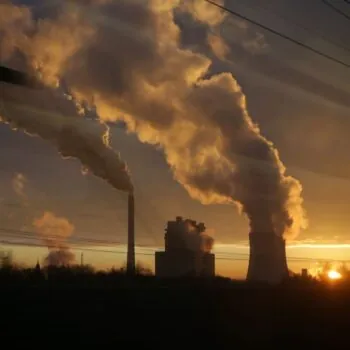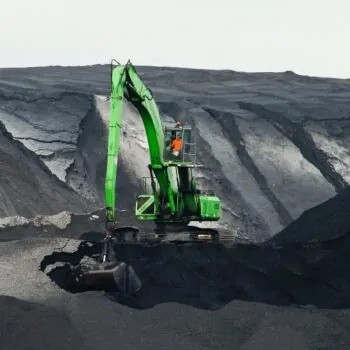EMBARGOED 00.01 JST Friday 20th May (16.01 BST Thursday 19th May)
Tokyo: The Japanese government is pressing ahead with controversial plans to build 47 new coal power plants, despite falling coal use across the G7 and China, suggesting such investment will become “stranded”.
Launched today, the first updated G7 coal scorecard since the Paris climate agreement shows further positive progress in coal investment trends. Japan however remains at odds with its G7 counterparts:
- An additional 4GW of proposed new coal plant capacity has been cancelled, leaving Japan as the only G7 country actively seeking to build new coal power plants.
- UK coal power supplied zero electricity on several occasions last week for the first time since the beginning of coal-fired electricity generation in 1882. This follows a commitment by the UK Government to move towards a complete phase-out of coal power by 2025.
- Coal power is now in irreversible decline across the G7, with 41GW of existing coal plants added to the retirement pipeline, which now totals 165GW of closures.
Alongside the coal scorecard, E3G also publishes today a briefing paper ‘Against the odds’. This analyses how China and the USA are progressing on low carbon development as Japan bets on business as usual, despite the clear need for accelerated action in light of the Paris Agreement.

(Under Embargo untill 00.01 JST Friday 20th May/ 16.01 BST Thursday 19th May)
Chris Littlecott, Programme Leader at E3G said:
“The progress since our last assessment is startling. Coal power capacity is rapidly coming off the system in the UK and the USA. Other G7 members recognise that coal-fired generation is an old and dirty technology, not fit for the 21st century. In the last six months the UK and Alberta have both announced coal phase out policies to enable a managed transition to clean electricity. This makes Japan’s defiant pursuit of new coal plants an increasingly isolated position.”
Taylor Dimsdale, Head of Research at E3G, said:
“Japan’s weak emissions reduction target and planned coal investments put it out of step with a world that is quickly moving low carbon. It is wasting its considerable advantages both in diplomacy and in clean energy technology. Japan should use the G7 summit to re-emerge as a leader on climate change.”
The USA leads the G7 coal scorecard. More than 100GW of US coal plant capacity has now been retired.
Michael Brune, Executive Director of the Sierra Club, said:
"In this new era following the adoption and signing of the historic Paris Agreement, we've seen an acceleration of the tremendous momentum moving us toward a 100 percent clean energy economy. In the past six years, the U.S. has announced the retirement of over 230 coal-fired power plants. It's obvious that the world is moving beyond dirty, dangerous fuel sources of centuries past, and it's time for all of the world's biggest emitters – including Japan – to follow suit."
The UK is now second in the coal scorecard ranking. Last week saw periods where coal power supplied no electricity to the grid for the first time since the Victoria era. 4GW of coal plants have already closed in the UK this year, and the government has committed to phase out coal power entirely by 2025.
Chris Littlecott, adds:
“The UK is showing clear international leadership as the first country to announce a full phase-out of coal power. But it’s not acting alone. The US, UK and Canada are all setting the pace, with other G7 countries behind them. The direction of travel for coal is clear across the G7, and increasingly internationally. It’s on its way out. Japan alone has failed to grasp this reality, and is still clinging to the past instead of looking to the future.”
In Canada, the Province of Alberta has committed to ending coal use in power generation by 2030. Alberta contains half of Canada’s remaining coal power plants.
Japan remains in last place in the G7 coal scorecard with no change in score since October. Japan is still pursuing efforts to construct over 25GW on new coal capacity. Opposition from the Environment Ministry has been overruled in favour of an inadequate voluntary agreement with utilities to reduce emissions intensity.
Kimiko Hirata, International Director for Japanese NGO Kiko Network said:
“Japan continues to be the only G7 country undertaking a coal rush in spite of the Paris Agreement, the global coal decline, and the evidence that ‘clean’ coal is a myth. It is shamefully hypocritical that Prime Minister Abe has placed climate and energy on the G7 agenda whilst Japanese investment flows into climate-destroying coal plants at home and abroad rather than directing investment into renewables.”
Germany has also seen progress as policymakers begin to grapple with the challenge of phasing out coal plants and enabling a just transition for mining regions.
Sabrina Schulz, Head of E3G Germany said:
“Germany may have improved in our G7 assessment, but it is from a low baseline. A credible and urgent transition plan for the workers in lignite regions will be the litmus test on whether the country takes its climate responsibilities seriously.”
France incorporated specific actions on coal into its international leadership of the Paris Agreement, including tight restrictions on export credits and the retirement of existing coal power plants at home.
Italy holds the Presidency of the G7 in 2017 and has an opportunity to make good on Prime Minister Renzi’s assertion that coal plants need to be shut.
China – host of the G20 Summit in September – is also reducing its coal use. In 2015, while China’s electricity demand grew by 0.5% its coal consumption and imports fell 5% and 35%, respectively. In 2015 total renewable energy investment in China rose 17% to US$102bn – more than double that of Japan where investment has remained flat over the past two years.
– Ends –
Notes to Editor:
The new coal scorecard is available here: https://www.e3g.org/library/japanese-coal-report
The G7 low carbon development breifing is availible here: https://www.e3g.org/library/Japans-bad-bet-on-a-high-carbon-future
New stranded assets research by the University of Oxford Smith School has warned of flaws in Japan’s coal-fired power plant expansion.
Full report: http://www.smithschool.ox.ac.uk/research-programmes/stranded-assets/satc-japan.pdf
Ecofys, The incompatibility of high-efficient coal technology with 2°C scenarios, 2016 http://www.ecofys.com/files/files/ecofys-2016-incompatibility-of-hele-coal-w-2c-scenarios.pdf
For more on Sierra Club’s Beyond Coal campaign: http://content.sierraclub.org/coal/
Carbon Brief, Analysis: UK solar generation tops coal for the first time, April 2016 http://www.carbonbrief.org/analysis-uk-solar-generation-tops-coal-for-first-time
About E3G:
E3G are the independent experts on climate diplomacy and energy policy. We work to accelerate the transition to a low-carbon economy.
E3G builds cross-sectoral coalitions to achieve carefully defined outcomes, chosen for their capacity to leverage change.
E3G is a European organisation with a global outlook and reach. We currently have offices in London, Brussels, Berlin and Washington DC, together with a regular presence in China.
www.e3g.org
Media contacts:
E3G:
Chris Littlecott, Programme Leader (In Tokyo 19-24 May)
Chris.littlecott@e3g.org
+44 (0)7920 461 812
Sabrina Schulz, Head of E3G Berlin
Sabrina.schulz@e3g.org
+49 (0) 1578 686 7370
Kiko Network:
Kimiko Hirata, International Director (Tokyo)
khirata@kikonet.org
+81-90-8430-7453
kikonet.org


